ב"ה
Free Will Audio

Audio | 1:08:25
We learn that the freedom to choose, necessitates a choice. There is also a higher level, where an identity can exist without a choice -- freedom from choice. The information in this talk is indispensable in understanding the human condition, morality and Judaism.
|

Audio | 45:16 Advanced
A comprehensive analysis of the complex issue of free choice; the need for free choice and its reconciliation with divine providence and G-d’s all encompassing knowledge.
|

Audio | 53:21
This lecture address, from both a philosophical and practical perspective, the timeless question regarding man’s capacity to choose freely notwithstanding G-d’s absolute knowledge and providence, based on the teachings of Maimonides.
|

Audio | 1:18:53
How do we connect with G-d? How are we judged by G-d? The real meaning of freedom and choice.
|

Audio | 45:59
If G-d knows what is going to happen, where is our free choice? Discover the deeper meaning of "G-d was, is, and will be".
|

Audio | 22:16
Step One tells us we are powerless over our addiction. What does Judaism say about powerlessness and Freedom of Choice?
|

Audio | 2:00:18
Analyzing a profound metaphor from a passage of Zohar
|

Audio | 11:07
Gifts from Above can't last forever
|

Audio | 15:36
All the responsibility, no room for despair
|

Audio | 19:45
Learning Pirkei Avot on Five Levels
The world was created with ten utterances. What does this come to teach us? Certainly, it could have been created with a single utterance. However, this is in order to make the wicked accountable for destroying a world that was created with ten utterances, and to reward the righteous for sustaining a world that was created with ten utterances. (Ethics of Our Fathers ch.5:1)
|

Audio | 19:21
Jewish Theology, Lesson 5
If we are part of G-d’s plan, then why did He give us the choice to deviate from the plan? To what extent do our choices really affect our lives? This fifth in a six-part series on core Jewish beliefs examines the importance of free will and its effect on our lives.
|

Audio | 1:12:26
Free Choice, Determinism, and G-d's Knowledge
If G-d knows what we will choose, do we really have free choice? In this challenging 1-hour lecture, Rabbi New tackles this profound paradox.
|

Audio | 37:20
Divine Providence, Free Will, and Suffering as a Philosophical Ailment
A wide ranging philosophical exploration of Maimonides' treatment of divine providence, free will and suffering. Ultimately, through contemplation of G-d man can transcend the spiritual ailment, which is the real source of suffering.
|

Audio | 8:52
Isaac had attained such a lofty nature that his body was a loyal agent of his soul.
|

Audio | 45:46
Why does Maimonides equate the commandment of keeping fair weights and measures to the commandment of believing in the Exodus? The answer leads to a better understanding of the Exodus as the foundation of all commandments and also the issue of free choice in the face of Divine decree. (Based on Likkutei Sichos, vol. 27, Kedoshim pp. 149)
|

Audio | 1:10:48
How to Study Torah - Balak
When King Balak hired the evil prophet Bilam to curse the Jews, G-d told Bilam, (Bamidbar 22:12) "Do not curse the nation for they are blessed." But when Balak sent more officers to ask Bilaam again, he told them, (22:19) "Stay here tonight, and I will know if G-d wants to say anything more to me." Why didn't Bilam answer that G-d had already told him not to go? Furthermore, why did G-d eventually allow Bilam to accept the task of cursing the Jews after having previously warned him not to?
|

Audio | 1:20:28
How to Study Torah - Pinchas
Learn about the unusual procedure by which the Tribes of Israel were assigned to their portion in the Land. What does this teach us about providence, predetermination and fate?
|

Audio | 1:13:05
How to Study Torah - Matot
Just before entering the Promised Land, two and a half of the Twelve Tribes ask for special permission to settle on the other side of the Jordan River. If they were meant to settle in that place, then why didn't G-d assign it to them to begin with? And if they were not meant to settle there, then why did G-d agree to their request?
|

Audio | 54:21
Parsha Re'eh
When giving charity, clearly one should give wholeheartedly and pleasantly. But how critical to the mitzvah of tzedakah is the manner in which it is given? Maimonides and Rashi offer differing views. This class analyzes their positions and reveals the essence of charity. (Likutei Sichos vol. 34, Sicha 2)
|

Audio | 1:09:00
Studying Rashi: Parshat Re'eh
In verse 12:17, the Torah says: "You cannot eat within your cities the tithe of your grain...or any of your vows that you will vow..." Rashi clarifies that it does not mean "you cannot" but rather "you are not allowed to." What is the difference between being able and being allowed to do something?
|

Audio | 31:13
|

Audio | 30:55
Monism in the thought of the Lubavitcher Rebbe
Divine monism and creation: the paradox of otherness, human existence, and freedom of choice.
|

Audio | 28:45
Embracing tensions in Maimonides’ theology
Throughout Maimonides' writings there is a clear tension between his goal of communicating a clear theosophical vision and his affirmation that ultimately the human mind cannot full grasp the true nature of G-d.
|
Related Topics
- Freedom of Choice (151)




